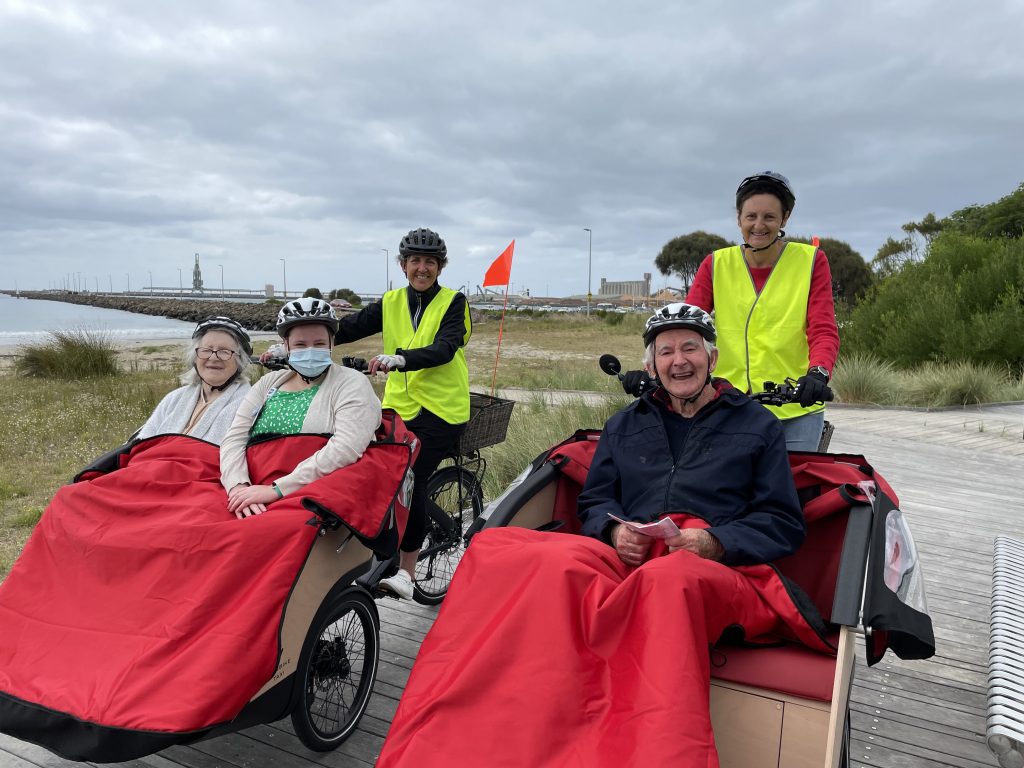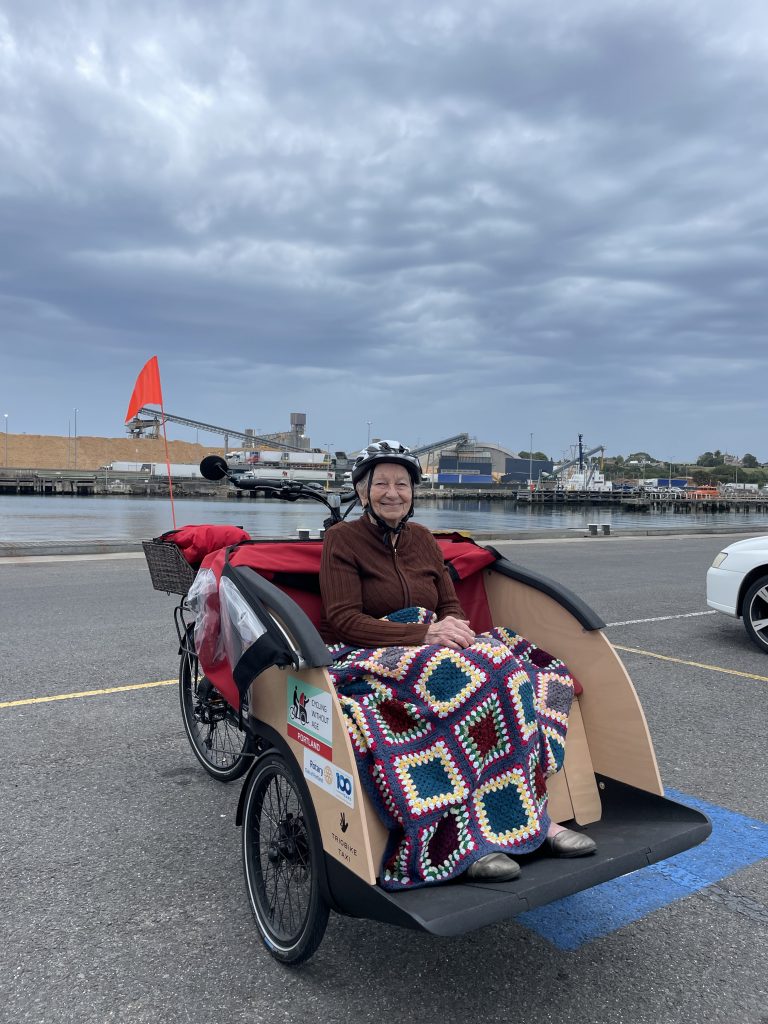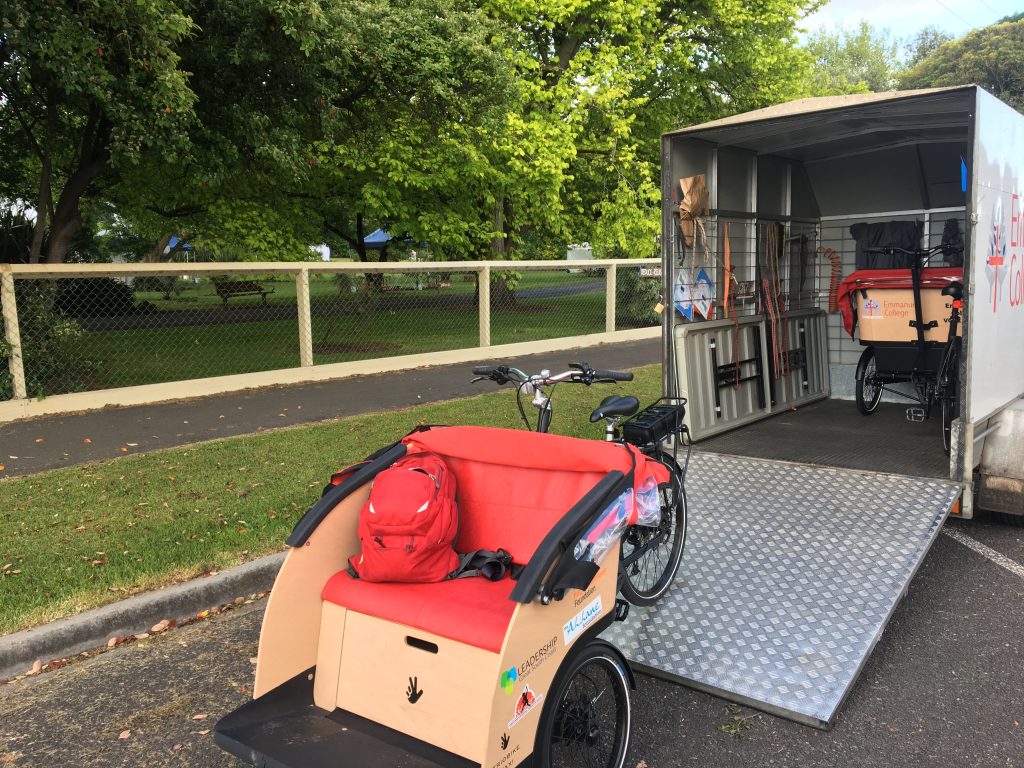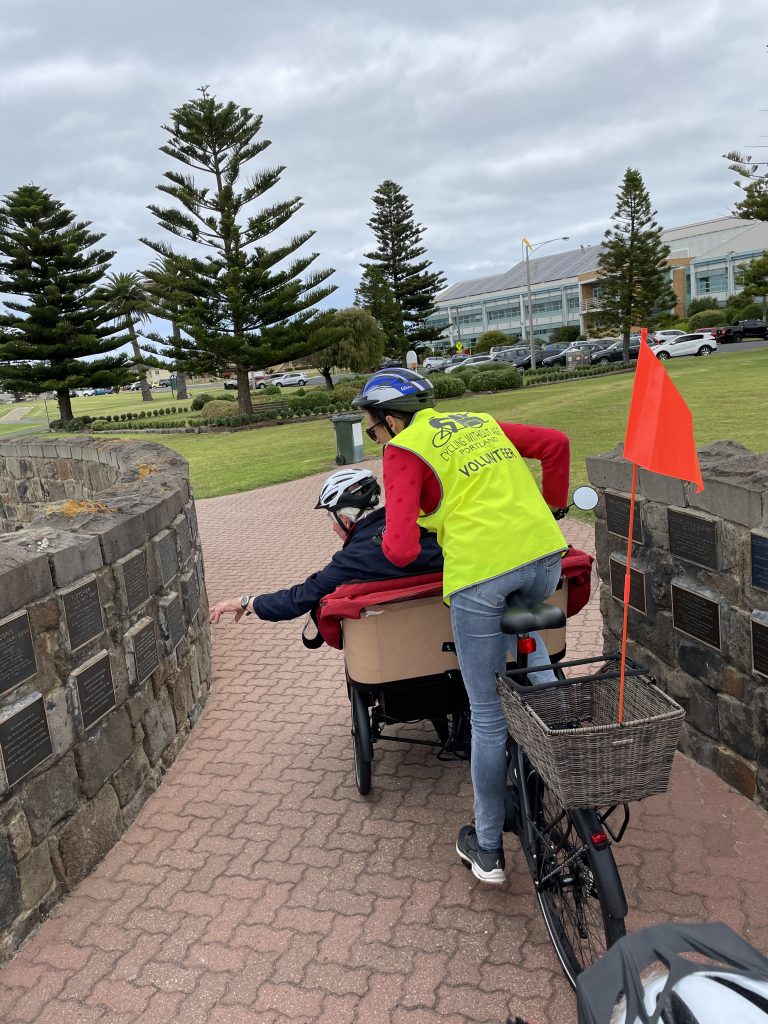Foundation for Rural & Regional Renewal (FRRR)
On Gunditjmara Country
On the southwest coast of Victoria, the city of Portland and surrounding areas now have access to a fantastic service called Cycling Without Age.
Cycling Without Age (CWA) is a volunteer organisation that involves taking elderly and less-abled citizens out for free bike rides on a specialised bicycle called a trishaw. The project originally started in Denmark and after major success there are now 1600 chapters across the globe, including Portland.
CWA Portland has only been in the community since 2020, but in their short time they have secured funding to purchase bikes and also partnered with the local Rotary Club. Portland’s local Rotary Club has been in the community for 70 years and know the residents well. This partnership was a perfect way to get the project off the ground.
With support from the Rotary Club, CWA Portland applied for a Strengthening Rural Communities (SRC) grant to purchase a custom-built trailer that will allow them to transport two bikes to other communities across the Glenelg Shire.
After being awarded a $9,000 grant, supported by the Ian Rollo Currie Estate Foundation, CWA Portland was able to purchase the trailer and has been able to regularly pick up passengers from Harbourside Lodge Aged Care facility. They have plans to engage with the Casterton and Nelson communities.
The interaction that CWA Portland has had with Harbourside completely exceeded their expectations, with the facility embracing weekly rides that see new passengers joining in each time.
This program has been extremely beneficial for passengers. For elderly people and those living with a disability, loneliness and social isolation can be a big issue, particularly in remote, rural or regional communities. The CWA bikes give these people the opportunity to ‘feel the wind in their hair’ and a chance to visit some of their favourite places in their community. CWA provides a safe and enjoyable way for community members to socialise, tell their stories and be a part of the community once again.
For example, regular rider Brian, who suffers from memory loss, enjoys seeing all the local dogs when he’s out with CWA. Brian used to be a part of the local Vintage Car Club, and he sometimes gets to visit their museum. One day he saw an orange Charger in the museum that used to belong to his son, which made him very excited when he was able to remember it.
For more inspiring stories like this, head to our FY 2021/22 Annual Review.
Eventide Homes is a NFP organisation in Stawell, in the Northern Grampians Shire of Victoria. Founded in 1953, the organisation now offers 100 residential aged care places, from units for independent living and to 29 dementia specific beds. The 133 staff and 42 volunteers aspire to provide premium, innovative and stimulating accommodation and care.
Keeping fit and able in retirement is so important for maintaining a good quality of life. But staff realised that they needed to do more – physio and occupational therapy is provided to residents that required additional physical therapies, and gentle exercise sessions or walks in the park were on the cards but not particularly effective.
There was also the problem of falls – over a 17-month period, the organisation had seen an average of 22 reportable falls per month, and sadly, there was a fatality in 2018 due to a fall in a bathroom. Research suggests that residents of long-term aged care fall approximately three times more often than community dwellers. But frailty is preventable and treatable – with exercise. With the demand for residential aged care placements expected to treble by 2050, Eventide Homes wanted to implement best practise in falls prevention for their residents. They also knew that encouraging residents to be physically active and to build up their strength and balance would not only bring physical benefits, but also mental health benefits as well.
Citing research and population data, Eventide applied to the FRRR for their ‘Eventide Strength and Balance for Greater Mobility Project’ – to purchase fit for purpose strength and balance equipment specifically designed for aging individuals. One study concluded that a program of prescribed progressive resistance training plus balance exercises resulted in the rate of falls being reduced by 55%, and Eventide wanted to become an example of national best practise in developing a fitness and strength program for their residents. Back in 2019, they were successful in receiving a grant of $40,000 from FRRR’s larger leverage stream of Caring for Ageing Rural Australians (CARA).
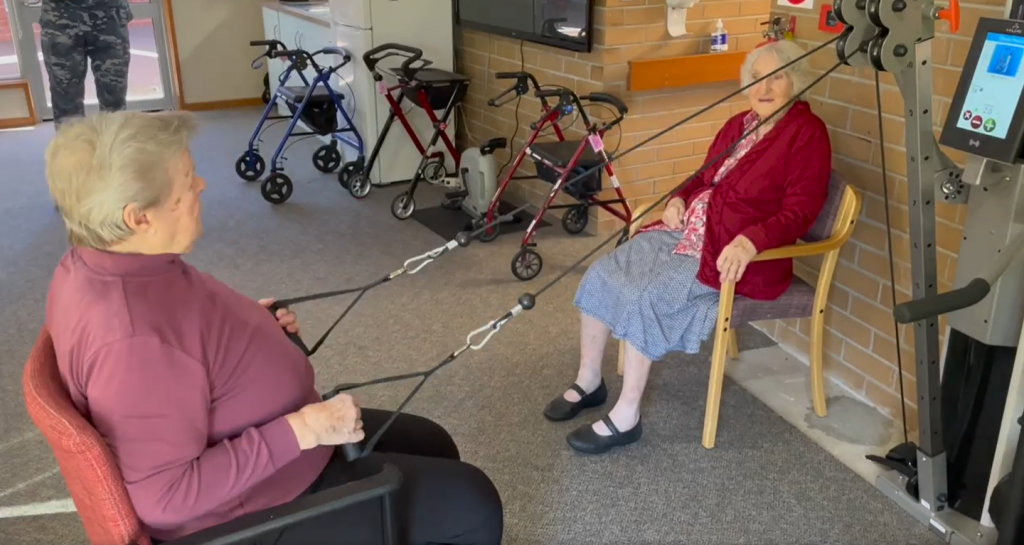
In the first months of 2020, the HUR equipment was purchased, set up, and staff trained in its use. Each resident participated in a one-hour session with an onsite physiotherapist and discussed goals to create an exercise program specific to them. Residents discussed things like being able to walk up the stairs at their children’s houses, being able to pick up objects from the floor and being able to walk without pain. Longer-term goals were broken down into smaller goals, which could be ticked-off over time, and the programs were documented in the system. With assistance from the team at HUR, Eventide staff implemented the smart touch system to automate each resident’s resistance training and monitor their sets and repetitions. This meant that clinicians could progressively increase resistance, and progress would be tracked through the system.
Sue Blakely, CEO, said they held an information session to get residents on board, and “to dispel some of the misconceptions about ageing and exercise.”
“We showed videos of 100-year-old powerlifters and residents in other homes who’ve increased their independence through strength, balance, and mobility training. We highlighted the different types of goals which people may have. After all, it may be more inspiring to be able to put on your own shoes, then pick up a kettlebell,” Sue said.
The equipment is even suitable for those residents who use wheel chairs and walking frames for mobility, as they can be assisted to sit to exercise and strengthen arms and legs.
This project will have great long term benefits into the future, as staff are able to support new residents to maintain their levels of strength, balance and fitness as they begin their residency in supported accommodation, rather than allow it to decline, which is so often the case when people enter aged care and become more sedentary.
Toni Williams, Projects & Marketing, Eventide Homes (Stawell) Inc. said “The launch of the new Eventide Homes ‘Gym’ was a hit with many residents already making the most of the new equipment. “
After just six weeks of the program, they found 8 out of 10 residents had improved their times ‘up and go’ score, by around 1 second on average. They have new residents enquiring about the program each week, and staff are excited about creating a culture of healthy movement.
“This grant and the new gym equipment has changed the fabric of our home. We intend to continue to make the most of it.”
Sue Blakely, CEO

